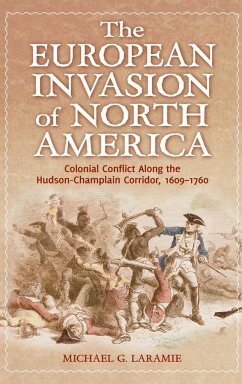This comprehensive resource follows the pivotal and often overlooked efforts of the Iroquois Confederacy, the Dutch, the French, and the English colonies to control the strategic waterways of the Hudson-Champlain corridor from their discovery to the fall of New France. From Champlain and Hudson's initial voyages some 400 years ago, to the surrender of Montreal in 1760, The European Invasion of North America: Colonial Conflict Along the Hudson - Champlain Corridor, 1609-1760 offers unprecedented coverage of the 150-year struggle between New World rivals along this natural invasion route-a struggle which would ultimately determine the destiny of North America. Unlike other volumes on this period, The European Invasion of North America includes extensive coverage from the French and Dutch as well as British perspectives, examining events in the context of larger colonial confrontations. Drawing on hundreds of firsthand accounts, it recaps political maneuvers and blunders, military successes and failures, and the remarkable people behind them all: cabinet ministers in Paris, Amsterdam, and London; colonial leaders such as Stuyvesant, Frontenac, and Montcalm; shrewd diplomats of the Iroquois Confederacy; and soldiers and families on all sides of the conflict. It also highlights the growing friction between Britain and her American colonies, which would soon lead to a different war.
Hinweis: Dieser Artikel kann nur an eine deutsche Lieferadresse ausgeliefert werden.
Hinweis: Dieser Artikel kann nur an eine deutsche Lieferadresse ausgeliefert werden.








